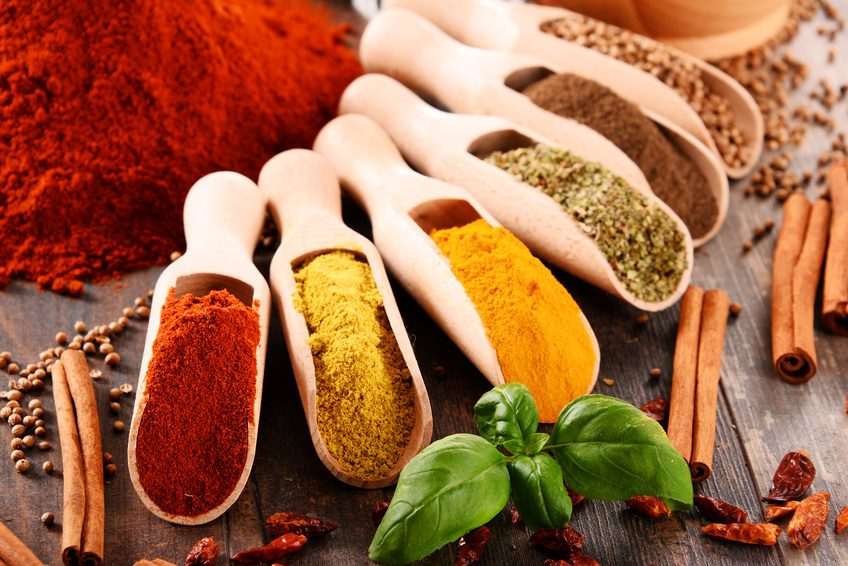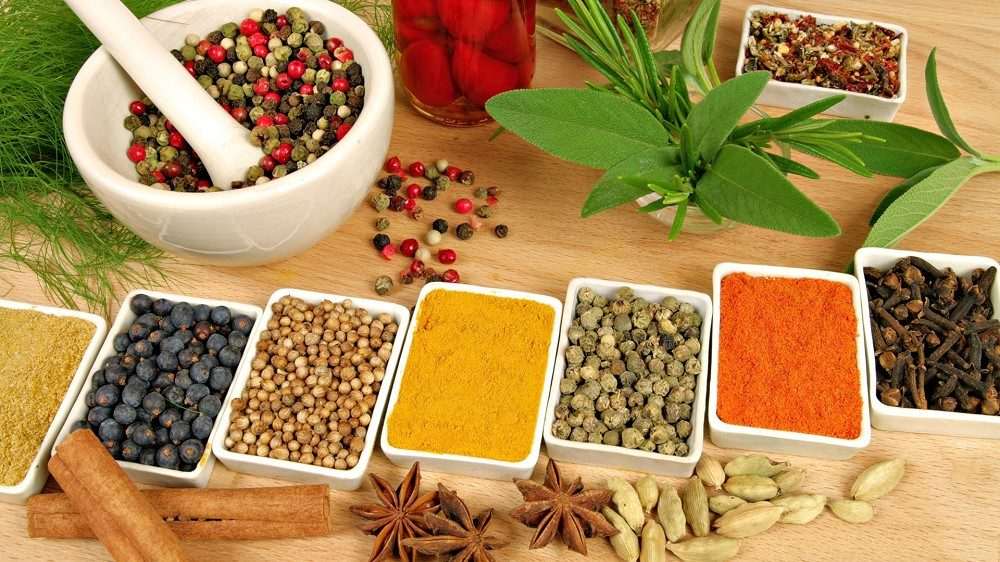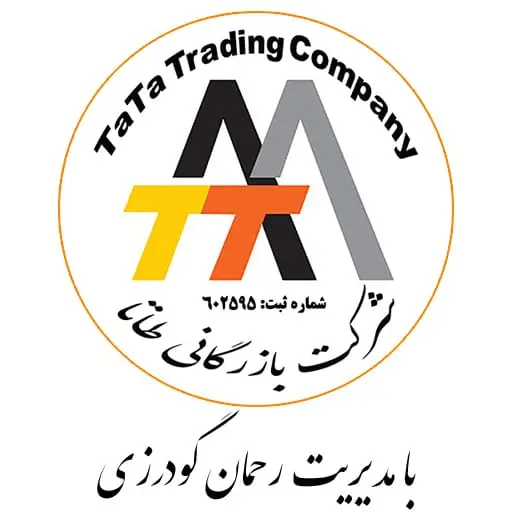Organic Herbs
Export of medicinal plants and organic products by Tata Trading Company

Everything You Need to Know About Exporting Organic Herbs Products
Iran is one of the major exporters of medicinal plants. Medicinal plants are used worldwide for treatment and prevention of various diseases, and even modern medicine occasionally validates these methods. These plants serve as excellent sources of raw materials for many industrial and chemical drugs. Therefore, their remarkable properties should never be overlooked. Iran, due to various reasons including favorable climatic conditions, is recognized as a primary hub for cultivating medicinal plants.
Furthermore, the traditional medicine has been prevalent among the general population for centuries, and it is considered beneficial. Until a few years ago, people primarily used naturally grown medicinal plants. However, with the increasing utilization of these plants, large-scale cultivation has become more common. This trend has progressed to the point where we now witness exports of medicinal plants. In this Karmento article, we delve into the details of exporting medicinal plants to different countries. If you want to explore which medicinal plants are exported from Iran and learn about the conditions and regulations governing their export, don’t miss the continuation of this article.
Export of Organic Herbs and its profits
Given our country’s favorable climatic conditions and advantageous geographical location, it has the capability to produce exportable agricultural products. This advantage becomes even more apparent when we realize that approximately 90% of various medicinal plants are currently produced domestically. Consequently, the export of medicinal plants is also included in our list of export items. However, the profit from exports depends on various factors and is not always constant.
The annual volume of exporting different medicinal plants is influenced not only by the demand of destination countries but also by the production rate within our country. Therefore, the profit derived from it is also subject to these factors. However, in general, it is predicted that the export of medicinal plants and spices will increase approximately 3 to 5 times in the coming years. This prediction arises from the fact that people’s demand for using medicinal plants is steadily rising.
In Iran, over 8,000 different plant species grow, with approximately 450 of them falling into the category of medicinal plants. The export of each type of these plants depends on the regulations of the destination countries. Out of the total $124 billion worth of global medicinal plant exports, Iran’s share is approximately $440 million, signifying that our country contributes around 4% of this global trade.
Export Conditions for Organic Herbs to Other Countries
Anyone intending to engage in this field must familiarize themselves with the conditions for exporting these medicinal products to other countries. One of the key requirements for exporting medicinal plants is obtaining the necessary and essential licenses. Anyone involved in the trade of these types of plants must approach various organizations and authorities to obtain sufficient licenses.
Medicinal plants are directly related to people’s health, which is why strictness in granting licenses is necessary. These regulations are enforced both by the originating countries and the relevant organizations in the destination countries.
To obtain export licenses for medicinal plants by producers, they must approach multiple organizations, including ministries of health, agriculture, and industry and mining trade. These organizations provide mandatory certifications to producers by examining the type of medicinal plants. These licenses and certifications ensure that your products comply with the standards for exporting medicinal plants. Additionally, there are legal requirements specific to the export of these products that you must be well-informed about and adhere to.

Export Regulations for Organic Herbs to Foreign Countries
When you want to produce a food product and make it available to consumers, you must be aware of specific regulations and adhere to them. However, if you intend to prepare these same products for export to foreign countries, the conditions become somewhat more complex. Export regulations for medicinal plants and products follow a similar pattern, and you must pay attention to them when engaging in this field. Different countries around the world have unique regulations regarding food and edible products. Therefore, for exporting a product, you must not only consider domestic laws but also the regulations of the destination countries.
Exporting medicinal plants is recognized as a highly profitable non-oil trade for a country like Iran. Given the profits from this export, it is natural that Iranian traders would focus on learning the rules of this business. These regulations are not uniform for exporting products to all countries worldwide, and they also vary for different types of medicinal plants. For this reason, seeking consultation from experts is essential. Obtaining advice on exporting medicinal plants helps traders overcome potential challenges12.
Export steps of Organic Herbs from Iran to other countries
Since the export of medicinal plants falls under the category of food product exports, its process differs slightly from other sectors. In the method of exporting these products from Iran to other countries, the first step is to pay attention to the health and freshness of the product until it reaches the consumer. However, most medicinal plants are exported in dried form, which reduces some of the hassles associated with this matter. Nevertheless, the profits from exports make it easier for traders to endure these stages and their challenges.
Let’s delve further into the stages of exporting medicinal plants and explore what needs to be done in this field.
Procuring Medicinal Plants
Naturally, the first step in exporting herbal medicinal products is to ensure an adequate supply of the product. Traders must be able to provide medicinal plants for export based on the market demand in the destination country and the production capacity within Iran. The method of exporting various medicinal plants varies and largely depends on the specific destination country.
Product Packaging
Medicinal plants are often consumed in dried form, which means their quality is less affected by shipping conditions. However, regardless of the form of export (bulk or individual packaging), special attention must be given to the packaging of the export product. If your product is exported in bulk, packaging is relatively straightforward. However, for individually packaged products, several considerations come into play.
For instance, the packaging of your medicinal plants could include information on usage instructions, plant properties, manufacturer details, and more. Providing sufficient information on the packaging demonstrates the importance to consumers and ensures that the information is consistent with the language of the destination country.
Obtaining Necessary Licenses
One of the essential requirements for exporting various medicinal plants is obtaining the necessary licenses. These licenses may vary depending on the type of medicinal plant and the regulations of the destination country. In general, to obtain the required licenses for your product, you need to be informed about the standards for exporting medicinal plants.
Presenting the Product to Customs and Obtaining Certificates
After your product has secured the necessary licenses, you can present it to customs. The customs authority is responsible for exporting medicinal plants and other export products. By submitting the product to customs and completing the mandatory forms and invoices, you should obtain a health certificate for your product.
This certificate is provided by the customs authority and is specific to the export of various food products. To obtain the health certificate from customs, your product undergoes testing, and its health is verified. Afterward, you can receive your cargo clearance certificate from this authority.
5. Delivery of Consignments to Transport Companies
As a producer, you must have a contract with a transportation company for exporting herbal and medicinal products. After completing the aforementioned steps and clearing the product from customs, you can deliver it to your contracted transport company. These companies should guarantee the product’s integrity throughout the entire export process and adhere to the standards for exporting medicinal plants.
6. Obtaining Final Export Documents for Medicinal Plants
In the final stage, you need to complete and obtain all export documents for other countries. Typically, producers, transport companies, and other transaction parties receive predetermined percentages, with the remaining amount paid after presenting the bill of lading. Once all documents are finalized, your product will be ready for shipment to the destination country. Seeking advice from an herbal medicine export consultant can expedite the entire process.

Best Medicinal Plants for Export to Other Countries
As we all know, traditional medicine and the use of medicinal plants have a rich history in Iran. Medicinal herbs have always held a special place in our culture, and we benefit from their properties. However, this potential can be turned into an opportunity for profitability through exporting these products.
People worldwide are increasingly turning to the use of medicinal plants due to their remarkable properties. Iran, as a recognized country in this field, enjoys a favorable position. However, the main challenge lies in the fact that due to export standards for various medicinal plants in some countries, not all types of medicinal herbs can be exported to them.
Appropriate Sourcing and Packaging Methods for Exporting Medicinal Plants
As mentioned in the stages of exporting herbal products, the sourcing and packaging methods for these products are crucial. The packaging should be designed in a way that makes the product suitable for export. Paying special attention to packaging can contribute to increased sales. Not only should the packaging adhere to export standards for medicinal plants, but it should also be visually appealing to attract customers.
However, the packaging method for your product directly relates to the destination countries. For example, we all know that Gulf countries are major importers of luxury goods. Therefore, products intended for export to these countries should have more sophisticated packaging. European countries also prioritize the practicality of packaging. Consequently, when exporting various medicinal plants, careful consideration of packaging is essential.
Tata Trading Company, with years of experience in the field of import and export of goods, is one of the prominent companies in exporting quality medicinal plants from Iran. This company, by utilizing experienced and proven managers, has set its goal to facilitate complex import, export and customs clearance affairs alongside respectable merchants and traders.
Tata Trading Company, considering the importance of packaging in the export of medicinal plants, strives to export these products in the best possible way and using suitable packaging to maintain quality. This company also has the ability to establish contact with foreign trading companies by examining various international markets and can send or import the required goods under the best conditions.
Given that the export of medicinal plants requires compliance with a set of customs regulations, Tata Trading Company, with its specialized and familiar forces with these regulations, can help its customers in the best possible way in this regard. This company also provides transportation services for exported and imported goods.
In general, Tata Trading Company, with its extensive experience in the field of exporting medicinal plants, can be recognized as a reliable partner for traders and merchants in this field.
